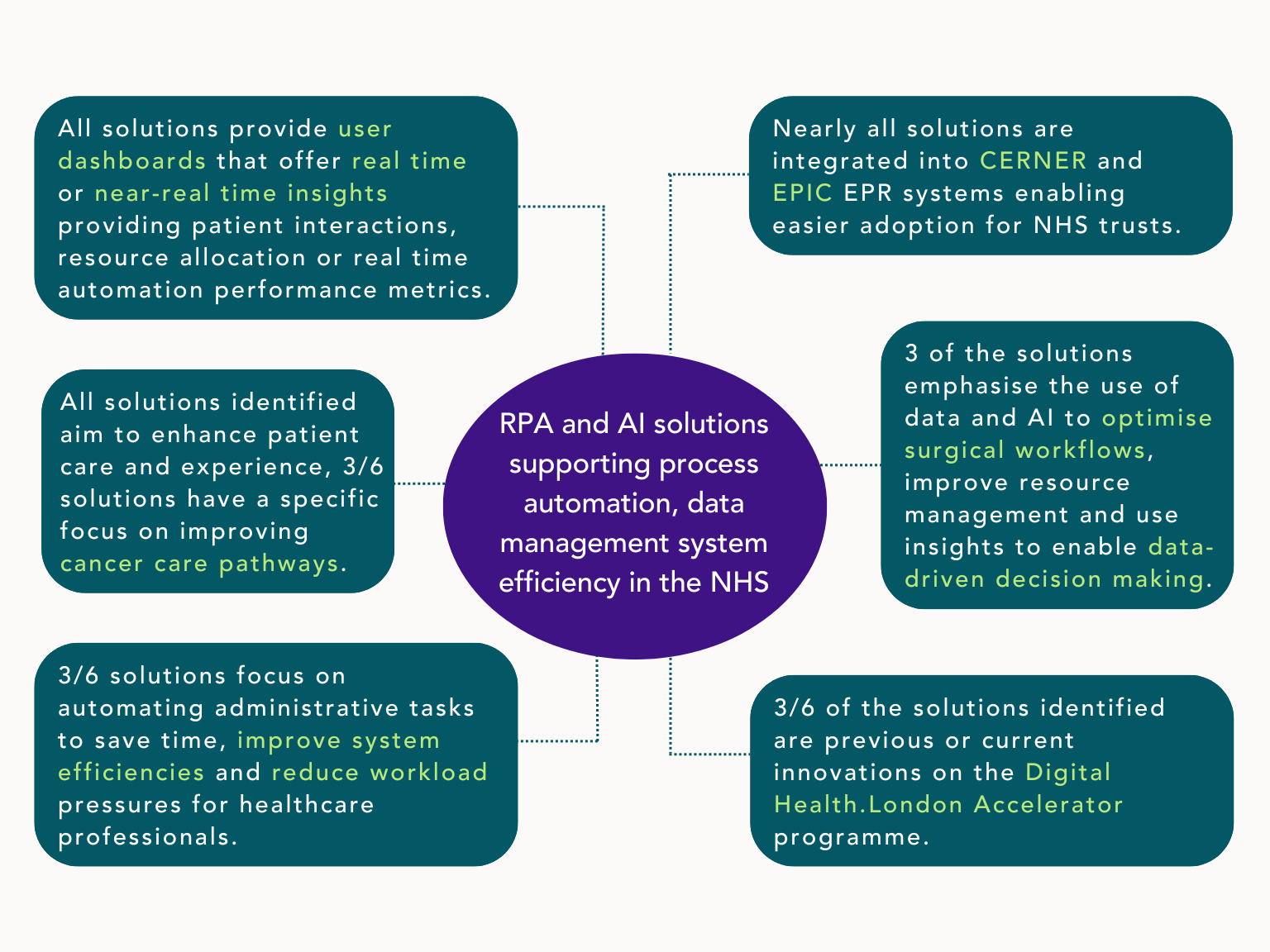Find out more
If you would like to review the market review, please get in touch with your local cancer alliance or contact us below.
Get in touch
In October 2023, according to NHS England, the 62-day backlog fell from its peak of over 34,000 patients to around 21,000. However, despite this progress, a large backlog remains with patients awaiting cancer diagnosis and treatment.
It is crucial to improve operational performance at every step of the cancer pathway to enable cancer alliances to reach the 62-day referral to treatment standard and the NHS Long Term Plan ambition, for 75 per cent of patients to receive a diagnosis within 28 days. Optimising the capacity of cancer pathways through digital solutions is an essential step to addressing this challenge.
Robotic Process Automation (RPA) solutions are rapidly being adopted across NHS trusts to improve efficiencies and reduce the repetitive workload. Many RPA tools demonstrate capabilities to enhance key processes within the cancer pathway. These solutions and processes can result in risk stratification, patient prioritisation, automated patient booking, efficient communication processes and in doing so, significantly alleviating workforce pressure.
South East London Cancer Alliance (SELCA) sought to understand the market of available RPA solutions and understand learnings from Cancer Alliances that have automated parts of their pathway.
to define the market review
to shortlist RPA solutions
to understand lessons learned and challenges with implementation
to understand problem area, define needs and process mapping
to understand capabilities and benefits of technology
Automation capabilities have progressed along their spectrum and can now be clustered into three groups.
RPA ‘bots’ are programmed to perform manual repetitive tasks. No mind of their own, but only ‘do as they are told/programmed’ i.e. copy and paste, automate repetitive tasks.
IA refers to the integration of robotic and intelligent systems from various emerging technologies, thereby increasing the scope of automation beyond simple rule-based tasks.
AI can make logical decisions and problem solve based on information and patterns they have learnt from data. AI can use speech recognition, visual perception to response to prompts within a computer system.
Implementing RPA, a technical solution, in NHS trust sites offers numerous advantages. The key benefits of RPA include:
With the rising number of referrals and increased workforce pressures, tackling the referral process and the movement of data from e-referral Service (eRS) to the Patient Administration System (PAS) is seen as a priority.
Manually uploading high volumes of patient data creates an opportunity for human error, resulting in some referrals being missed or delayed, therefore cancer patients being seen later for their first appointment. Automating this process will alleviate pressure on the team to manage the high levels of referrals received daily and focus time saved be spent on urgent priorities.
The below findings are based on desktop review into RPA and AI solutions supporting process automation, data management system efficiency in the NHS.

With growing demand for RPA and IA, it is essential for NHS trusts sites to choose the right automation solutions that align with their specific purpose and objectives. To achieve this, healthcare providers should:
Additionally, it is recommended to arrange product demonstrations with suppliers and operational or clinical colleagues at adopter sites to gain practical insights into the products.
If you would like to review the market review, please get in touch with your local cancer alliance or contact us below.
Get in touch